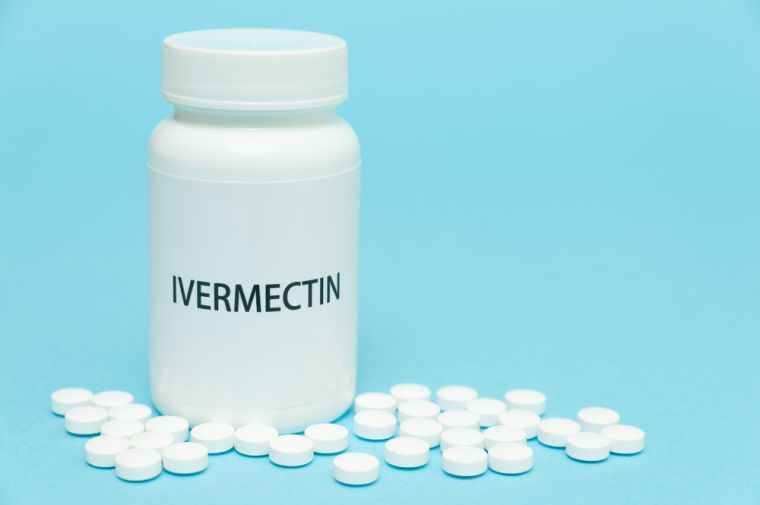Ivermectin Iverheal 12mg is an antiparasitic medication used to treat a variety of infections caused by parasites, such as onchocerciasis (river blindness), strongyloidiasis, scabies, and head lice. It has been widely used in both humans and animals, playing a crucial role in global health programs. However, taking ivermectin Iverheal 6mg correctly is essential to ensure its effectiveness and safety.
This blog will cover how to take ivermectin properly, including dosage guidelines, administration tips, potential side effects, and important precautions.
Understanding Ivermectin: What It Does and How It Works
Ivermectin works by paralyzing and killing parasites that infect the body. It does this by targeting the parasites’ nervous system, causing them to become immobile and eventually die. Since human nerve cells do not have the same receptors as parasites, ivermectin does not harm human cells when used correctly.
The medication is available in various forms, including oral tablets (3mg, 6mg, 12mg), topical creams, and lotions, but this guide focuses on the oral ivermectin tablet commonly prescribed for human use.
How to Take Ivermectin Correctly
1. Follow Your Doctor’s Instructions
Before taking ivermectin, consult a healthcare provider to ensure you are using the correct dose and treatment schedule. The dosage varies depending on the infection being treated, body weight, and overall health condition.
2. Take Ivermectin on an Empty Stomach
- Ivermectin should be taken on an empty stomach, at least 1 hour before or 2 hours after a meal.
- This helps increase its absorption and effectiveness.
3. Swallow the Tablet with Water
- Take the ivermectin tablet whole with a full glass of water.
- Do not chew or crush the tablet unless advised by a doctor.
4. Ivermectin Dosage Guidelines
The recommended dosage of ivermectin depends on the type of infection:
For Onchocerciasis (River Blindness):
- Dosage: A single dose of 150 micrograms per kilogram (mcg/kg) of body weight.
- Frequency: Treatment is repeated every 6 to 12 months until the infection is under control.
For Strongyloidiasis:
- Dosage: A single dose of 200 mcg/kg of body weight.
- Frequency: Some patients may need a second dose after two weeks, depending on the severity of the infection.
For Scabies:
- Dosage: 200 mcg/kg as a single dose.
- Frequency: A second dose is recommended 7 to 14 days later to kill any remaining mites.
- Severe scabies (crusted scabies): Multiple doses may be needed along with topical treatments like permethrin cream.
For Head Lice (Off-Label Use):
- Dosage: 200 mcg/kg, usually given in two doses (with a one-week gap between them).
- Alternative: Topical ivermectin (lotion) is also available for lice treatment.
For Lymphatic Filariasis (Elephantiasis):
- Dosage: 200 mcg/kg in a single dose, often combined with albendazole for better effectiveness.
- Frequency: Given as part of mass drug administration (MDA) programs in endemic regions.
5. What to Do If You Miss a Dose
- If you miss a dose, take it as soon as you remember.
- If it is almost time for your next scheduled dose, skip the missed dose and continue with the next one.
- Do not take a double dose to make up for the missed one.
6. Avoid Alcohol While Taking Ivermectin
- Alcohol may increase the risk of dizziness, nausea, and liver-related side effects when combined with ivermectin.
- It is best to avoid alcohol consumption while on this medication.
Precautions to Consider Before Taking Ivermectin
Who Should Not Take Ivermectin?
- Children under 15 kg (33 lbs): Ivermectin is not recommended for very young children unless prescribed by a doctor.
- Pregnant or breastfeeding women: Consult a doctor before using ivermectin, as its safety during pregnancy is not well established.
- People with liver or kidney disease: If you have a history of liver or kidney problems, your doctor may need to adjust your dosage.
- Patients with weakened immune systems: Individuals with HIV/AIDS or cancer should seek medical advice before taking ivermectin.
Potential Side Effects of Ivermectin
While ivermectin is generally safe, some people may experience side effects.
Common Side Effects:
- Nausea
- Dizziness
- Diarrhea
- Fatigue
Less Common But Serious Side Effects:
- Severe allergic reactions (rash, itching, swelling)
- Neurological effects (confusion, loss of coordination, seizures)
- Eye problems (redness, vision changes, swelling)
If you experience severe side effects, seek medical attention immediately.
Frequently Asked Questions (FAQs) About Taking Ivermectin
1. Can Ivermectin Be Taken with Food?
No, ivermectin should be taken on an empty stomach for the best absorption.
2. How Long Does It Take for Ivermectin to Work?
- For strongyloidiasis, symptoms often improve within a few days after taking ivermectin.
- For scabies, itching may persist for 1-2 weeks as the dead mites are cleared from the skin.
- For onchocerciasis, ivermectin does not kill adult worms, so multiple doses are needed over time to prevent further infection.
3. Can Ivermectin Be Used to Prevent Parasite Infections?
Ivermectin is used in mass drug administration programs to control parasite transmission in high-risk areas, but it is not typically used as a preventive medicine for individuals.
4. Can Ivermectin Be Taken for Viral Infections?
Despite claims during the COVID-19 pandemic, ivermectin is not approved for treating viral infections, including COVID-19. Clinical trials did not show strong evidence supporting its use against viruses.
5. What Should I Do If I Overdose on Ivermectin?
Overdosing on ivermectin can lead to serious side effects such as seizures, coma, and vision problems. If an overdose is suspected, seek emergency medical help immediately.
Conclusion
Ivermectin 6mg is a highly effective antiparasitic medication when taken correctly. It is primarily used for treating onchocerciasis, strongyloidiasis, scabies, and head lice. To ensure the best results:
- Follow your doctor’s dosage instructions carefully
- Take it on an empty stomach with water
- Avoid alcohol while on the medication
- Monitor for any side effects and seek medical advice if needed
By using ivermectin responsibly, you can effectively combat parasitic infections and improve your overall health.


